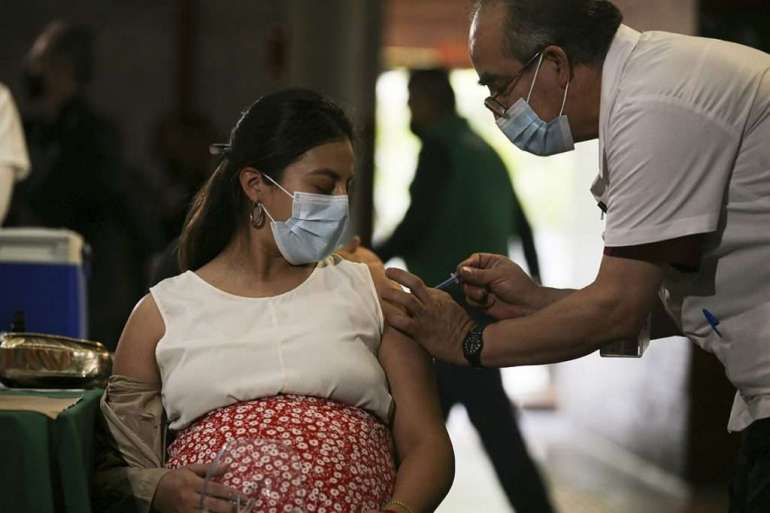U.S. diplomats: Send vaccine overseas now or China, Russia will win out

“As does the broader administration, the State Department recognizes that, first and foremost, we need to be confident in our own vaccine efforts at home — at which point we’d be able to do even more beyond our borders,” a senior State Department official said. “The administration has now determined that we’re in a position to do more beyond our borders, and that’s precisely what we’re doing, building on what we’ve already done to lead the world in responding to COVID-19.”
While COVAX has signed recent deals with Moderna and Novavax to increase supply through its channel, U.S. officials have calculated that there are other ways for the U.S. to help quickly get doses overseas. But the administration is still discussing whether it should send doses from its stockpile or whether to find other avenues, two senior health officials told POLITICO.
One idea is to ask a pharmaceutical company to produce doses for countries in need and subsidize the cost of each vial. That process could take several months to complete, those officials said. Another option is to earmark future doses of the AstraZeneca vaccine made in the U.S. and send them to countries across the globe as soon as they clear quality control. But AstraZeneca is still in negotiations with a potential new U.S. manufacturing partner to replace Emergent, a person familiar with the matter said.
“There is huge demand for vaccine all over the world. To be honest, we have not made a decision yet as to the criteria for allocating those vaccines,” Smith said Wednesday. “I think the thing we want to be very squarely focused on is how we can get additional vaccines in some markets so there can be coverage of more people in more countries more quickly.”
The State Department, along with the National Security Council and USAID, is reviewing dozens of requests from countries across the globe — all of them consolidated on an internal tracker. The tracker lists what countries have asked for, what the U.S. has pledged, and what the administration is in the process of allocating.
Still, deciding who should stand at the front of the line is a messy process. Officials must consider a host of factors, including Covid-19 positivity rates, death rates, how many doses a country has received, what it is expected to receive and what kind of capacity the country has to handle an outbreak.
That calculation doesn’t just include foreign needs, either. It also includes domestic politics, namely whether the Biden administration feels it can publicly say that it wants to give away American Covid-19 vaccines and other resources at a time when vaccination rates are falling and large swaths of the country have yet to receive the jab.
“So much of what we do internationally depends on how well we’re doing domestically,” Smith said.
Biden has said he intends to send at least some of the initial 60 million doses to India, but senior administration officials are pushing back that any final decision has been made — even for India — which is still seeing thousands of people die of the virus each day. Two senior administration officials working on how to get countries Covid-19 supplies said the U.S. is increasingly concerned about countries in south Asia, particularly Nepal.
In the Senate Foreign Relations hearing Wednesday, Jeremy Konyndyk, executive director of the USAID Covid-19 task force, said his team has calculated that Nepal is the highest priority next to India. He said that the U.S. would be sending another $10 million to help Nepal combat the virus, including in the form of testing resources.
“As we look at surges in other areas — the Indian variant is in multiple countries already — we’ve got to be focused on how do we lead the global effort? How can we increase supply as we are considering the allocation of the [AstraZeneca] doses?” Smith said, adding that the State Department is focused on helping countries bordering the U.S. and in the northern hemisphere.
“We will deliver on what we promise,” Konyndyk said. The administration “has the ambition of ending the global pandemic,” he added. “That is the legacy that we want.”